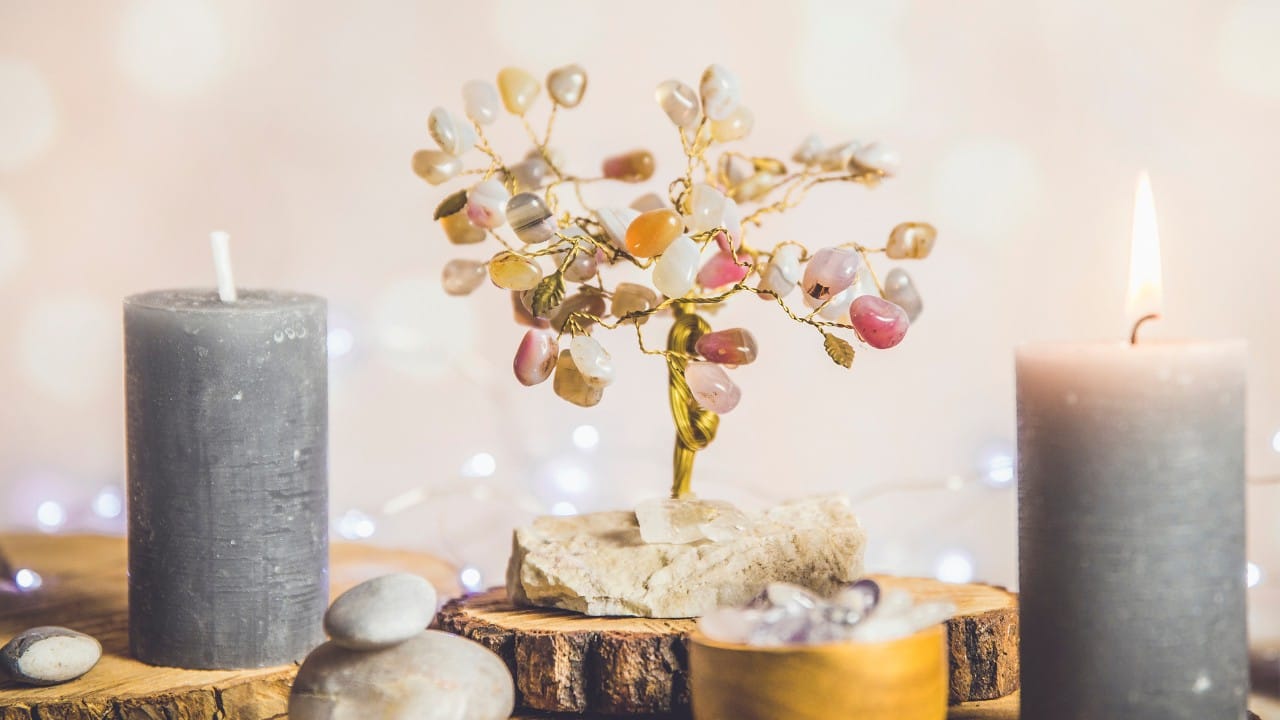Simple Feng Shui Tips to Bring Positive Energy Into Your Home

Have you ever walked into a home that felt peaceful and inviting, almost as if it was radiating positive vibes? That feeling is no coincidence—according to feng shui, the way we organize and decorate our living space can significantly impact our energy and well-being. Feng shui, an ancient Chinese practice, focuses on balancing the flow of energy, or chi, to create harmony in your surroundings.
The good news? You don’t need to overhaul your entire house to feel the benefits of feng shui. Small adjustments can make a big difference. In this article, I’ll share simple and practical feng shui tips to help you bring positive energy into your home.
1. Declutter to Allow Energy to Flow Freely
Clutter is one of the biggest obstacles to positive energy. In feng shui, clutter blocks the flow of chi, causing stagnation in your life. By clearing your space, you allow fresh energy to enter and circulate.
How to Start:
- Tackle one room or area at a time.
- Get rid of items you no longer use or love.
- Organize your belongings to create a clean, open space.
Example: A cluttered entryway may block new opportunities from entering your life. Keeping it tidy and open invites positive energy and new beginnings.
Tip: Make decluttering a regular habit to maintain a balanced and energized home.
2. Create a Welcoming Entrance
Your front door is known as the “mouth of chi” in feng shui—it’s where energy enters your home. A clean, inviting entrance sets the tone for the energy that flows throughout your space.
Enhance Your Entryway:
- Keep the area around your front door clean and well-lit.
- Add welcoming touches like a doormat, plants, or artwork.
- Ensure your door opens easily without obstruction.
Example: A stuck or squeaky door may symbolize blocked energy. Fixing it allows opportunities to flow into your life with ease.
Tip: Avoid placing clutter, shoes, or trash near the entrance, as it can repel positive energy.
3. Balance the Five Elements
In feng shui, harmony is achieved by balancing the five elements: wood, fire, earth, metal, and water. Each element represents different energies and qualities, and incorporating them throughout your home can create a sense of balance.
Ways to Use the Elements:
- Wood: Add plants, wooden furniture, or green accents to promote growth and vitality.
- Fire: Use candles, warm lighting, or red décor to inspire passion and creativity.
- Earth: Incorporate earthy colors (beige, brown) and natural materials like stone to create stability.
- Metal: Use metallic accents or white décor for clarity and focus.
- Water: Add mirrors, water features, or blue décor to encourage flow and abundance.
Example: A living room with too much metal (e.g., steel furniture) might feel cold and rigid. Adding a plant or a soft rug can restore balance.
Tip: Pay attention to which elements feel missing or overpowering and make small adjustments.
4. Let Natural Light and Fresh Air In
Light and air are essential components of chi. A dark, stuffy room can feel stagnant, while a bright, airy space feels alive and uplifting. Feng shui emphasizes the importance of natural light and ventilation to keep energy flowing.
How to Improve Light and Air Flow:
- Open your windows regularly to let in fresh air.
- Use curtains that allow natural light to filter through.
- Add mirrors to reflect light and expand the energy in a room.
Example: A dark corner of your home can be brightened with a strategically placed mirror or a lamp, creating a more vibrant atmosphere.
Tip: If natural light is limited, use full-spectrum light bulbs to mimic daylight.
5. Arrange Furniture for Energy Flow
The placement of furniture affects how energy moves through your home. In feng shui, you want to avoid blocking pathways and create a layout that encourages smooth movement.
Tips for Furniture Arrangement:
- Keep walkways clear and avoid placing large furniture directly in the path of doorways.
- Position your bed, desk, or sofa so that you can see the door (known as the “command position”).
- Avoid sharp furniture corners pointing toward areas where you sit or sleep, as they can create “cutting” energy.
Example: If your desk faces a wall, you may feel blocked or unsupported in your career. Repositioning it to face the door can help you feel more empowered and in control.
Tip: Rearrange furniture periodically to refresh the energy in your space.
6. Use Plants to Uplift Energy
Plants are a great way to introduce the wood element into your home, symbolizing growth, vitality, and renewal. They also improve air quality and create a sense of calm.
Best Plants for Feng Shui:
- Lucky bamboo: Symbolizes resilience and good fortune.
- Peace lily: Known for purifying the air and promoting harmony.
- Money plant (pothos): Believed to attract financial abundance.
Example: Placing a healthy plant in your wealth corner (according to the bagua map) can support prosperity and growth.
Tip: Avoid keeping dying or neglected plants, as they can drain energy.
7. Incorporate Calming Colors
Colors have a powerful impact on mood and energy. In feng shui, each color is associated with one of the five elements and can influence the atmosphere of a space.
Color Suggestions:
- Blue and green: Promote calm, healing, and growth.
- Red and orange: Energize and inspire passion.
- Yellow and earthy tones: Create warmth and stability.
- White and metallics: Encourage clarity and focus.
Example: A bedroom painted in soothing blues may enhance relaxation and restful sleep, while a red accent wall in a dining room can stimulate lively conversation.
Tip: Use color strategically based on the purpose of each room.
8. Clear Negative Energy Regularly
Even if your home looks beautiful, energy can become stagnant or negative over time. Regular energy-clearing practices help maintain a fresh, vibrant atmosphere.
Ways to Clear Energy:
- Burn sage or palo santo to cleanse the space.
- Use sound, such as bells or singing bowls, to disperse negative energy.
- Open windows and let fresh air circulate during your clearing ritual.
Example: After an argument or a stressful event, performing an energy-clearing ritual can help restore harmony to your space.
Tip: Set an intention for positivity and peace while clearing your space.
9. Pay Attention to Your Bedroom
The bedroom is a sanctuary for rest and rejuvenation. In feng shui, it’s essential to create a peaceful, nurturing environment that supports relaxation and intimacy.
Bedroom Feng Shui Tips:
- Position your bed so that you can see the door without being directly in line with it.
- Remove electronics and mirrors that reflect the bed, as they can disrupt sleep.
- Use soft, calming colors and cozy textures to create a restful atmosphere.
Example: A clutter-free nightstand with a few meaningful items (like a book or a photo) can help promote peace of mind before bed.
Tip: Invest in quality bedding to enhance comfort and restfulness.
10. Use Symbols of Intention
Feng shui is deeply connected to intention. Placing symbolic objects in your home can remind you of your goals and aspirations.
Examples of Symbolic Enhancements:
- A vision board in your office to inspire success.
- A pair of candles in your relationship corner to symbolize partnership and balance.
- A water feature in your career area to encourage opportunity and flow.
Example: Displaying artwork that evokes joy and abundance can uplift your mood and attract positive energy.
Tip: Choose symbols that hold personal meaning and align with your desires.
Feng shui is about more than just aesthetics—it’s a way to create a harmonious, supportive environment that nurtures your goals and well-being. By implementing these simple tips, you can invite positive energy into your home and experience greater balance, peace, and prosperity.
Remember, even small changes can have a powerful impact. Start with one area of your home, set clear intentions, and notice how the energy shifts.
Are you ready to transform your space with feng shui?




